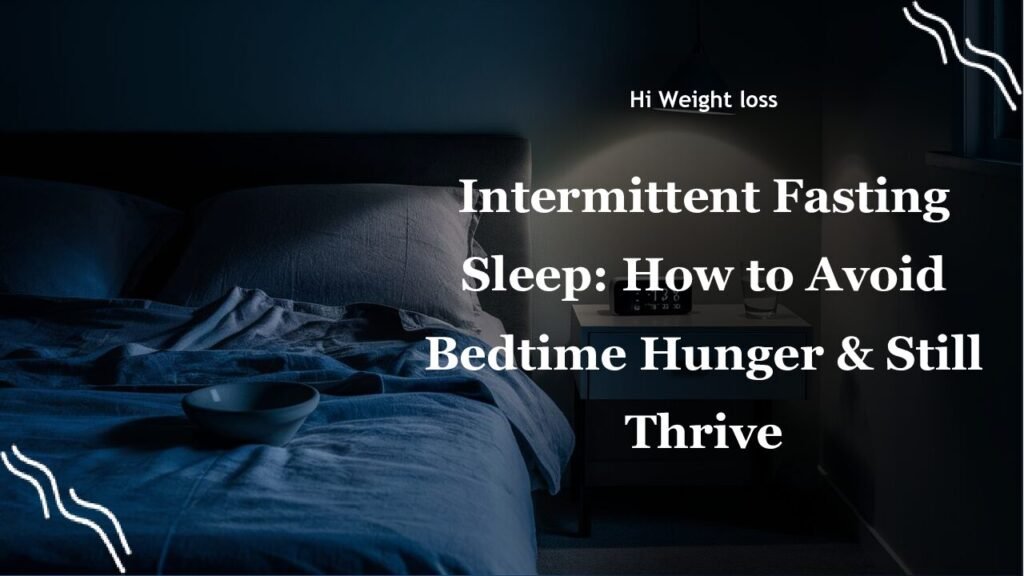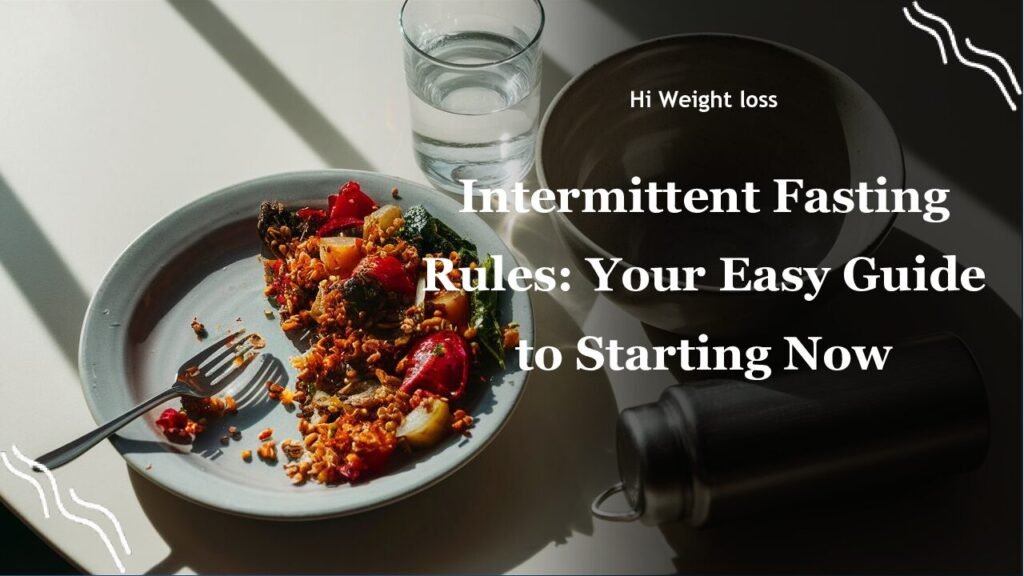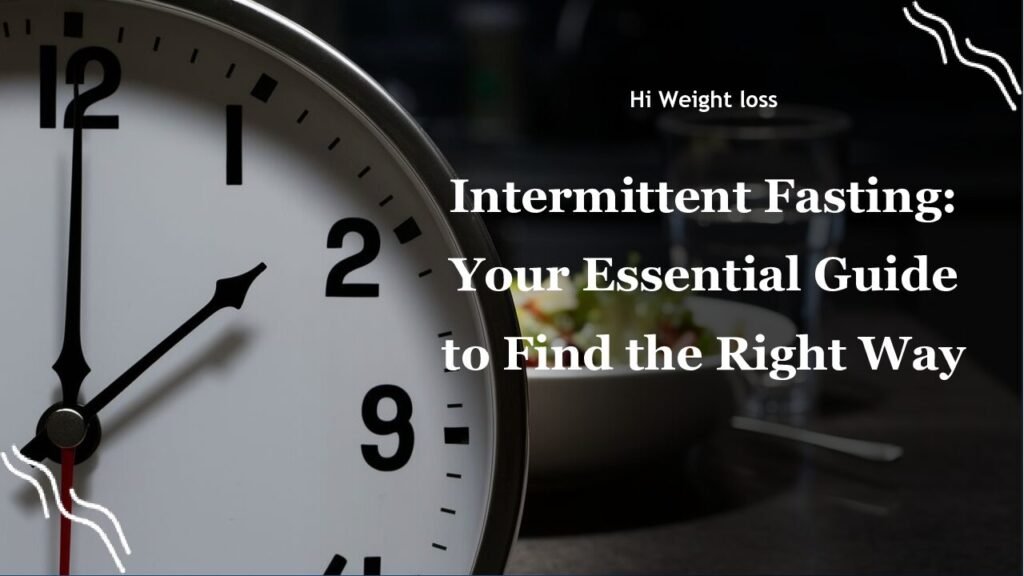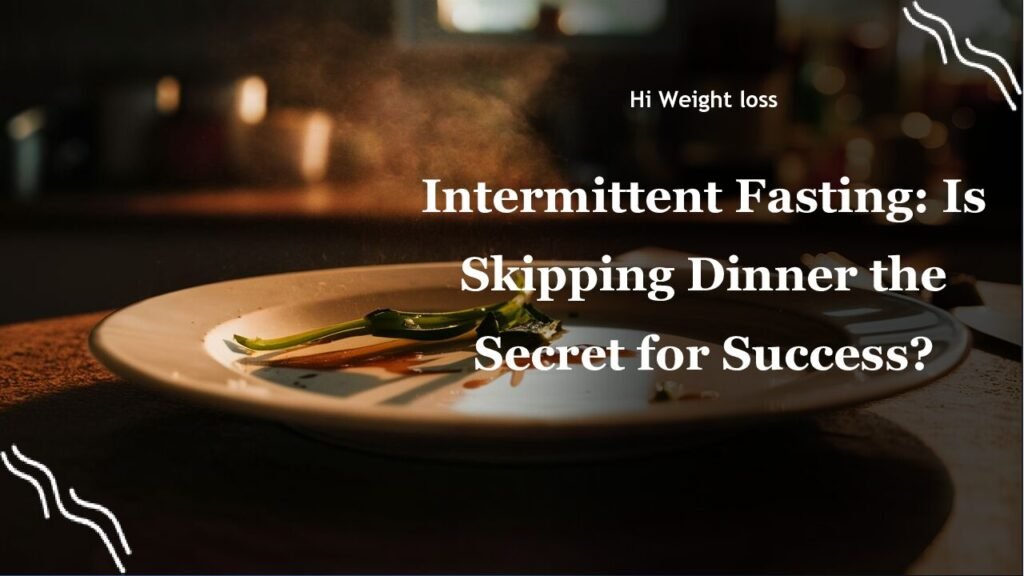“`
Struggling to sleep while following an intermittent fasting plan? Many people find themselves wondering, “Can you go to bed hungry intermittent fasting?” It’s a valid concern, because while intermittent fasting can offer some fantastic health benefits, going to bed with a rumbling stomach could mess with your sleep quality. This article will explore the positive and negative impacts of fasting before bed, and give you practical tips to avoid hunger-induced sleep disruptions, all so you can get the rest you deserve while maintaining your fasting schedule.
The Complex Relationship Between Intermittent Fasting and Sleep
Intermittent fasting isn’t just about *when* you eat; it also has the potential to influence *how well* you sleep. The impact on your sleep can really vary, depending on how you time your meals and how your body reacts. It’s not a simple yes or no answer.
The Upside: How Intermittent Fasting Can Boost Sleep
One of the most interesting ways intermittent fasting can improve sleep is by reinforcing your natural circadian rhythms. Think of your body’s internal clock, which is deeply connected to when you eat and see sunlight. When you consistently eat your meals at the same times each day, it can help to stabilize this internal rhythm, and this can lead to better, more consistent sleep.
Intermittent fasting can also lead to more balanced hormones. During fasting, your body can increase production of human growth hormone (HGH), especially during sleep. HGH assists with fat burning, muscle restoration, and cellular repair, all of which can contribute to a more restful night. It’s like your body is hitting the refresh button while you snooze!
The Downside: How Going to Bed Hungry Can Disrupt Your Rest
Unfortunately, it’s not all positive. Going to bed hungry while intermittent fasting can sometimes trigger some unwanted side effects. If you eat erratically or have heavy meals close to your bedtime, you are actually more likely to disrupt your sleep patterns.
Eating too late can elevate your body temperature, which can interfere with the natural dip in body temperature needed to fall into a deep sleep. Have you ever had that experience of tossing and turning after eating a big meal right before bed? It’s not comfortable, and it definitely doesn’t promote good sleep.
Another thing to watch out for is that if you go to bed feeling very hungry, it can increase levels of cortisol, the stress hormone. As you know, increased cortisol can reduce your sleep quality. It’s recommended to have your last meal at least three hours before bed to avoid that late-night tummy trouble and ensure that you don’t go to bed feeling ravenous. For me personally, I had to learn this the hard way, realizing that midnight hunger pangs weren’t conducive to a good night’s rest!
Striking the Balance: Planning Your Meals for Better Sleep
The real trick to intermittent fasting and good sleep is all about timing. When you are making your plan, make sure that your meal schedule works with your sleep routine. That means avoiding the pitfall of a late-night feast or a bedtime empty stomach.
Consider this: If your fasting window ends too close to bedtime, you might have difficulty falling asleep if you eat a big meal late, but if your last meal is too early, you will feel hunger. You need to find the sweet spot where you can satisfy your hunger without interfering with your body’s sleep cycle. For many, this involves making sure that your last meal is about 2-3 hours before you plan to go to bed. This has worked well for many people, including a friend of mine who tried this and found a big difference in her sleep quality.
It may take a bit of tweaking to find the ideal window for you and your personal schedule. Experiment and adjust as you go. It’s about finding a sustainable approach that supports both your fasting goals and your sleep needs. And most importantly, listen to your body – it will let you know if you are hitting the right mark.
The following table summarizes the positive and negative effects of intermittent fasting on sleep:
| Effect | Description | Impact on Sleep |
|---|---|---|
| Reinforced Circadian Rhythms | Consistent meal times synchronize the body’s internal clock | Improved sleep-wake cycle and better sleep quality |
| Hormonal Balance | Increased production of human growth hormone (HGH) | Supports fat burning, muscle restoration, and restful sleep |
| Disrupted Sleep Patterns | Irregular eating times or heavy late-night meals | Raises body temperature, upset stomach, difficulty falling asleep |
| Increased Cortisol | Going to bed hungry increases cortisol levels | Diminished sleep quality, stress response |

Practical Tips to Avoid Going to Bed Hungry
Here are some strategies that I’ve seen work, or even used personally, to help avoid that empty stomach feeling at bedtime, while keeping to your fasting goals:
- Strategic Meal Planning: Align your last meal to be at least 2-3 hours before bedtime to allow your body enough time to digest your food.
- Focus on Balanced Meals: Ensure that your meals are composed of foods rich in protein, healthy fats and complex carbohydrates. These help to keep you feeling full longer and are less likely to cause blood sugar spikes and crashes.
- Hydration: Drinking water regularly throughout your fasting window can help with hunger management. Sometimes what feels like hunger is simply dehydration.
- Adjust Fasting Times: If going to bed hungry becomes a consistent issue, consider adjusting the timing of your fasting window to allow a longer eating window earlier in the day.
- Light Snack Option: If you feel extreme hunger before bed, consider having a small, healthy snack right before you start your fast. Some options are a handful of nuts or a small bowl of plain yogurt. But be careful not to introduce something that may disrupt your sleep.
Conclusion
So, *can you go to bed hungry* while intermittent fasting? The answer, like most things with our bodies, is nuanced. Intermittent fasting can positively influence your sleep by helping to regulate your circadian rhythms and improve hormonal balance. However, going to bed too hungry or eating too close to bedtime can disrupt sleep. What does this mean for you? It means that if you are experiencing sleep issues during intermittent fasting, it is likely due to the way that you are eating or that you have gone to bed hungry. You might want to revisit your meal schedule and implement strategies such as shifting meal times, or the addition of protein and fiber to your meals. The key is finding the right balance that supports your health goals without sacrificing sleep quality. It’s not about perfection, but finding a method that works well for you and gives you both restful nights and successful intermittent fasting. If you found this information helpful, why not share it with someone you know who might be struggling with the same challenge?
FAQ
Will I lose weight if I go to bed hungry?
Weight loss depends on your overall calorie deficit, not just whether you go to bed hungry. Intermittent fasting can help create that deficit, but going to bed hungry and feeling stressed and deprived is counterproductive.
Is it okay to have a small snack if I’m hungry before bed while fasting?
It is okay to have a small snack if you are starving before bed. Focus on foods that are high in protein and fiber, or healthy fats, rather than carb-heavy snacks. A small portion of nuts or a little plain yogurt are better options than a piece of toast. Remember, the goal is to avoid disruptions to your sleep.
How long before bed should my last meal be?
Aim for your last meal to be about 2-3 hours before bedtime. This helps your body digest food properly without interfering with your sleep.
Where can I learn more about how intermittent fasting impacts sleep?
You can find great information from resources like the Sleep Foundation, which discusses the effects of intermittent fasting on sleep. You can also find information about intermittent fasting and sleep on the Saatva blog.
“`



